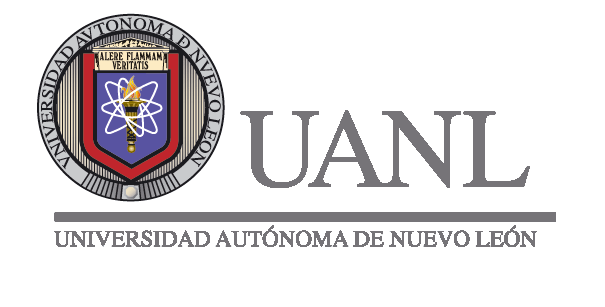Alejandro CARBALLO
Alejandro Carballo
Universidad Autónoma de Baja California
Facultad de Ciencia

Professional info
I finished my BSc in Biology from the Faculty of Sciences of the Autonomous University of Baja California in December 2006. Then, I joined to a research group in the same faculty for four years. During this time, I participated in the following projects:
- Protein Expression in Mammalian Cells (3T3 and CHO cells).
- Development of a treatment for Pierce’s Disease by Phage Display using Lytic peptides, in vitro, plants in greenhouse and vineyard tests.
- Development of a novel strategy to eliminate the bacterial Xylella fastidiosa (strain 9a5c) causing the disease of Citrus Variegated Chlorosis in Brazil.
- Transformation of Dunaliella salina by Micro-Particle Bombardment and Agrobacterium tumefaciens.
- Design and expression of Protein G in chloroplast of D. salina.
- Establishment of a novel system transformation in marine microalgae by pulsed laser.
- Vaccine development of recombinant proteins A/H1N1 in nucleus of D. salina.
I started my PhD in Biotechnology in January 2011 at the University of Manchester. My project is focused in optimisation of recombinant protein expression in E. coli and mammalian cells by increasing protein solubility through modification of surface patches. I submitted my thesis early January 2015. I have passed successfully my VIVA exam with minor corrections in February 2015.
Work experience
Post-Doctoral Research Associate
2015 - 2016
PDRA in the School of Chemistry, Manchester Institute of Biotechnology, University of Manchester, UK.
Developing web tools to predict protein solubility and/or aggregation. Access:
Teaching assistant
2012 - 2015
Teaching assistant (demonstrator) in the Faculty of Life Sciences, University of Manchester, UK.
Co-founder of Allele Biotech México
2009 - 2010
Distribution of oligonucleotides and reagents for molecular biology.
Instructor of the course "Science 3D Max”
2009
Animation of scientific phenomena, for graduate students and researchers at the Department of Microbiology, CICESE.
Researcher in the “Dra Meredith Gould Lab”
2007 - 2010
Projects mentioned above (Professional info).
Languages
English
Spanish
Skills
Laboratory
-
Agarose gel electrophoresis
-
Bioinformatics (Protein sequence and structure analysis)
-
Bioreactor scale-up
-
Cell culture
-
ELISA
-
HPLC
-
Molecular cloning
-
PCR
-
Phage display
-
Primers and gene design
-
Protein engineering and site-directed mutagenesis
-
Protein expression (CHO, E. coli, HEK-293, Microalgae)
-
Protein purification
-
SDS-PAGE and Western blot
Computational
Bioinformatic tools:
-
Bioblender
-
Discovery Studio
-
Image Studio
-
ImageJ
-
JalView
-
PyMol
-
Python
-
R
-
Sequencher
-
Serial Cloner
-
Swiss-Pdbviewer
-
UCSF Chimera
-
vector NTI
Design:
-
3ds Max
-
Autodesk Maya
-
CorelDraw
-
PaintShop
-
Photoshop
Sound and video recording:
-
Ableton live
-
Corel VideoStudio Pro
-
Windows Movie Maker
2010 - present
2010 - present
Education
PhD Biotechnology, University of Manchester
2011-2015
Thesis Title: Altering the solubility of recombinant proteins through modification of surface features (Funded by CONACyT bursary)
Supervisors: Professor Alan J. Dickson and Dr Jim Warwicker
Brief synopsis of research:
The main aim of the project was to solve protein aggregation issues upon heterologous expression in E. coli (Inclusion bodies) and mammalian cells (poor secretion). Two recently published computational hypotheses from our group were applied to develop a set of synthetic redesign proteins with modified solubilities. This included testing three protein models: (i) recombinant human erythropoietin (rHuEPO) (ii) recombinant 6-Phosphofructo-2-Kinase/fructose-2,6-bisphosphatase (rPFKFB3) and (iii) a set of three selected E. coli proteins: thioredoxin-1 (TRX), cold shock-like protein cspB (cspB), and the histidine-containing phosphocarrier protein (HPr). It was found that single or multiple point mutations (changing amino acids from positive to negative charge or vice versa; or lysines to arginines) verified the predicted effect on solubility for expression in E. coli. In addition, the redesigned set of rHuEPO transiently expressed in HEK 293-EBNA cells, suggesting that surface charged patch size may also influence protein secretion.
BSc Biology, Autonomous University of Baja California
2002 - 2006
First-class honours
Specialised in Molecular Biology with relevant modules in Biochemistry, Biophysics, Biotechnology, Cellular and Molecular Biology, Evolution, Genetics and Immunology.
BSc Biology, Autonomous University of Nuevo Leon
2005
Period of Academic Exchange (ANUIES program) for six months undertaking modules of Biotechnology, Immunology, and Molecular diagnosis of pathogens.





